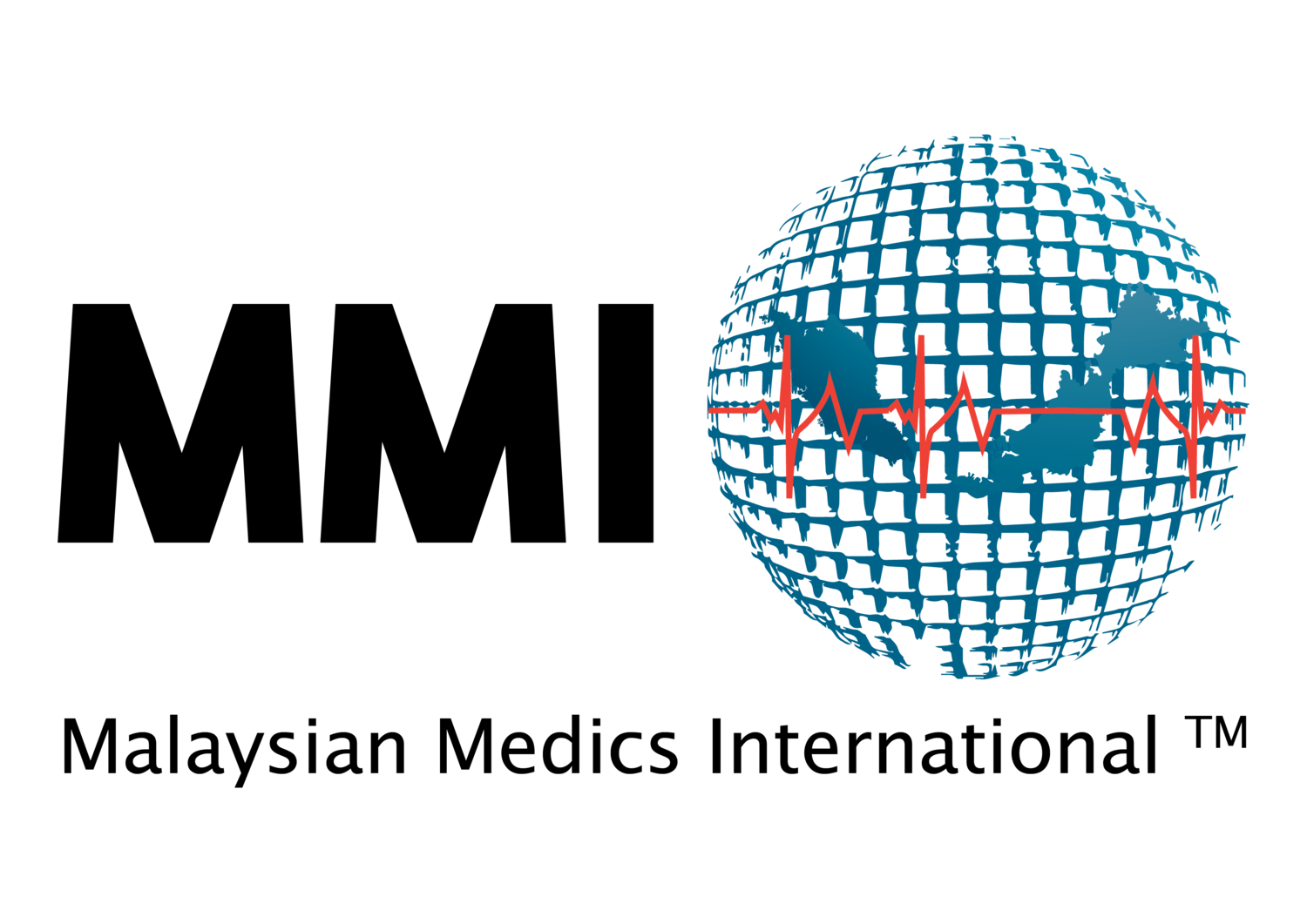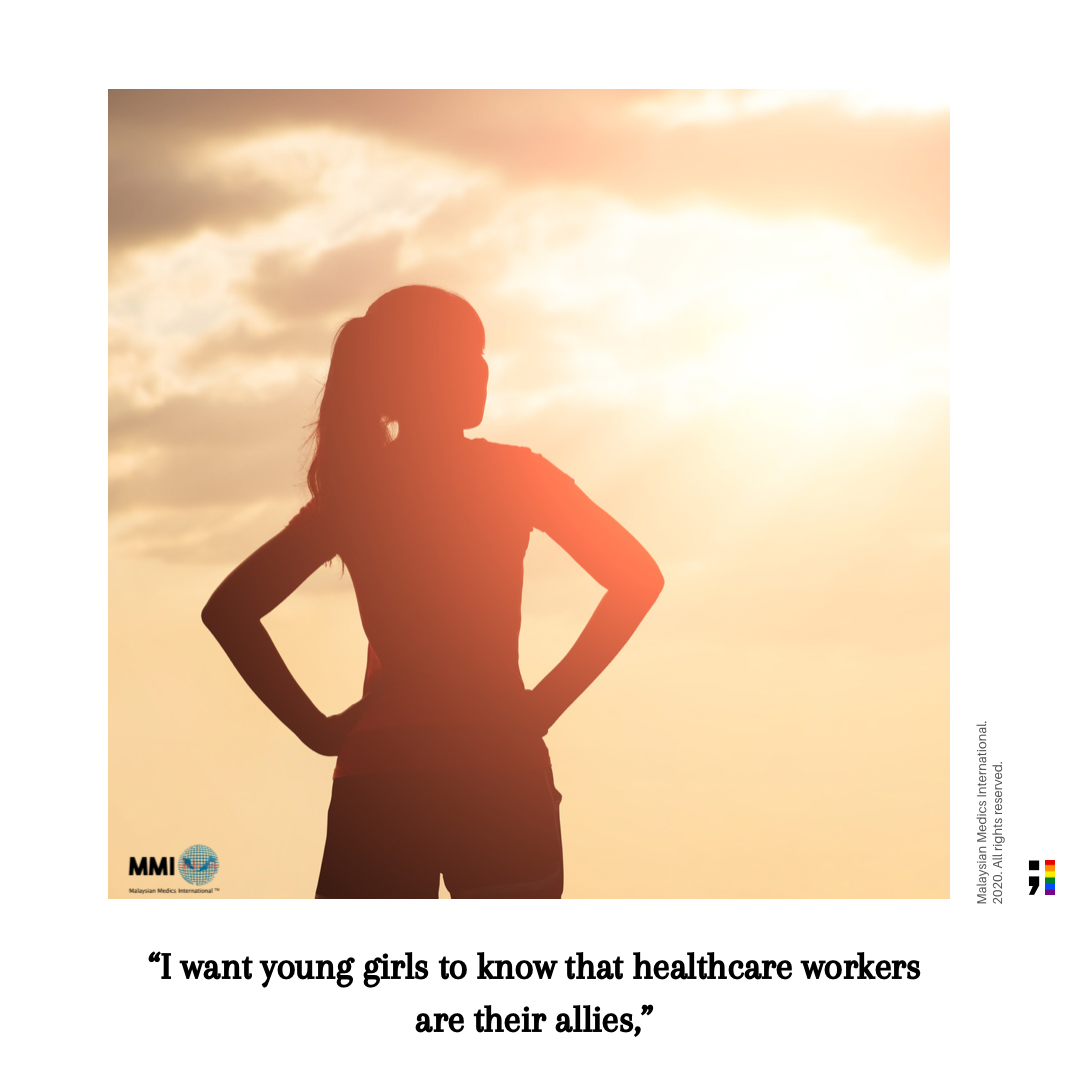“I’d like young girls to know that healthcare providers are their allies,”
Humans of Medicine #38
“I’d like young girls to know that healthcare providers are their allies,” – Mimie Rahman
This publication is in conjunction with the Healthcare for All campaign under the MMI Diversity and Equity Initiative. Information regarding the project can be found at @mmi_social on Instagram.
A voice went, “I was raped,”.
It sounded odd. Garish and out of place. Yet, this was my voice. The words bounced off the walls of the doctor’s office in the private hospital where I had seconds earlier requested to have a pelvic exam and pap smear performed. I glanced at the clock and noticed a full minute had passed. Wrapping my ankles around the cold metal of my chair, I leaned forward and reiterated my intentions– “I want to do a pap smear, please,”
I had come here with my mother, who only a few days ago learned that I had been sexually assaulted. To repeat “I was raped”, this time in an unfamiliar room of strangers’ questioning eyes, years after the traumatic incident– it wasn’t the easiest.
For the past couple of weeks, I experienced abnormal vaginal discharge and had noticed some swelling of the lymph nodes around my genital area. Fearing the worst, I mustered the courage to visit the OB-GYN, and had asked my mother to accompany me here this morning. I hadn’t expected the doctor to attempt to talk me out of the screening test. The doctor, accompanied by nurses, had asked about my marital status, and upon learning that I was unmarried, proceeded to lecture me about virginity and such.
Having been diagnosed with Post-Traumatic Stress Disorder (PTSD) after my assault, it was difficult for me to visit any doctor’s office. To even start the conversation about my mental health was an uphill battle. To talk about my sexual life, unbelievably daunting. It took a huge leap of faith to have me say this to a doctor. One that I was meeting here for the first time in my life.
A cold silence befell the room, and the doctor and nurses, now silent, began to conduct the examination, exhibiting professionalism I had only expected. Staring at the ceiling, the white fluorescent light was illuminating too many truths this morning. Earlier today as I walked in, I noticed the aseptic smell of the hospital waiting room. Sanitised and slightly bitter. Perhaps, so was I.
A week later, I returned to the hospital to collect my results. I felt a flood of ease coursing through my veins when I learned that the diagnosis was a dormant STI— a treatable infection that went away after a round of medication. Relief could not begin to describe how I felt.
Being involved as actively as I am now in the mental health space, I find the greatest takeaway is that I have learned to listen. I urge the legion of upcoming medical professionals to listen. Religious statements. Negative, prejudiced statements. These statements, our young ladies can do without. And to my girls out there reading this, when something happens to you, whether you are a survivor of sexual abuse, or if simply you are sexually active– don’t be afraid to talk about it. When you’re afraid to talk about it, you are breeding stigma within yourself and limiting your ability to seek professional help.
Unfortunately I harbour this experience where I was not spoken to with grace. My doctor allowed their cultural beliefs to dictate what they had said to me, and I will hold this memory as a lesson and reminder. As mental health awareness grows leaps and bounds, we see doctors taking active steps in sensitivity training to create safer spaces in their examination rooms. I am optimistic about the future of healthcare in Malaysia. I’d like young girls to know that healthcare providers are their allies. I’d like them to know that they are not alone.
About the author
(Interviewed and written by Ooi Yen MIng. Yen Ming is a second-year medical student at Universiti Tunku Abdul Rahman who enjoys all conversations but takes a particular delight in the unusual. She is well-spoken, gentle, and calm— except when she’s panicking.
Consent has been obtained from the interviewee for the purpose of this publication. The author has rewritten the article with permission from the interviewee.)
Humans of Medicine is a new initiative under MMI. We tell inspiring stories behind portrait shots of our everyday unsung heroes. Curated by Malaysian medical students from home and abroad.
If you have a story you would like to share, please reach out to us at admin@malaysianmedics.org.



